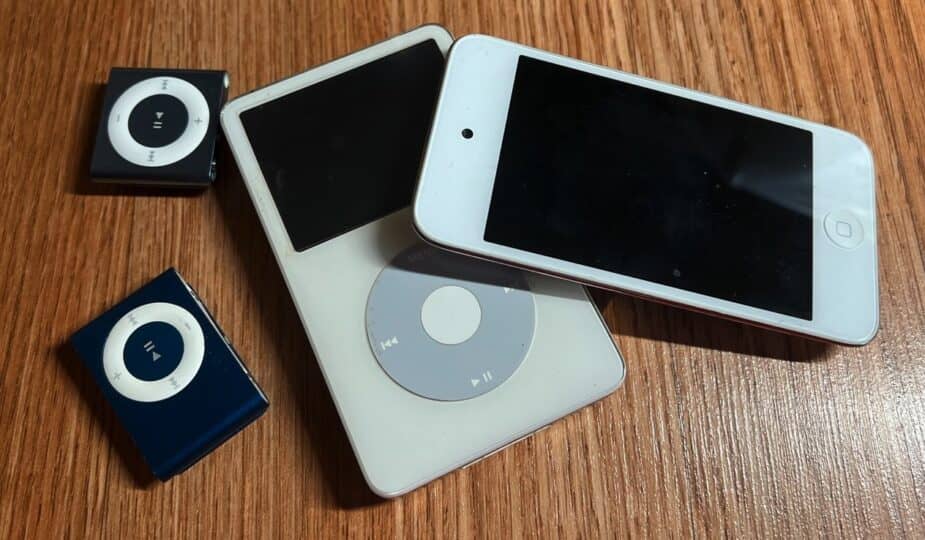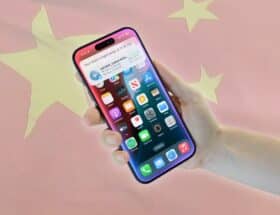 12 Facebook x.com Reddit
12 Facebook x.com Reddit
Last updated 7 minutes ago
The iPod line may be gone, but the once-ubiquitous device's influence still shapes Apple, music, and the world, 23 years after its introduction in October 23, 2001.
You had one. Everyone had an iPod, some had more than one, and at the time it seemed like Apple had somehow flipped a switch. One moment almost no one had a portable music player, and the next they were all wearing those white headphones.
That's not true, of course, because the iPod did take a long time to rise as high as it could. However, its eventual dominance was so complete that it used to be hard to imagine a time before the iPod.
It was also hard to remember that there were alternatives, but there were plenty of them. Apple's iPod was far from the first music player, and Microsoft's failed brown Zune might not even have been its absolute worst competitor.
But like any rise to power drama, the iPod had to watch its friends as well as its enemies. Because the iPod was killed by a rival device, and when it arrived, the impact of Apple’s own iPhone was all-out.
You don’t have an iPod anymore. It might be in a drawer somewhere, but in another switch, this treasure of our age went from everywhere to almost nowhere, except for a few diehards who replaced hard drives with flash drives.
When Apple announced the demise of the most recent iteration of the iPod, it did so with a headline that was meant to praise the device but felt more like a disdain for it. “Music Lives On” was the headline of a May 2022 announcement that first acknowledged the iPod’s death and then spent more time praising Apple’s AirPods.
We are fickle
If you needed proof of how quickly we forget things, you'll be surprised to read that the iPod's death occurred in May 2022. It feels like it was much sooner, partly because, in a way, it was.
Long before the iPod touch took its last breath, it had gone from being a physical device to briefly being the name of the iPhone's music app.
But the iPod's influence lives on
It's impossible to say for sure that the iPod gave us the iPhone, but it feels like it did.
“The iPhone project started with the iPod project,” said designer Tony Fadell, best known for his work on Apple's iPod. “We started seeing these phones with camera features that started adding digital music features, tools, to your phone.”
“And it was clear that at some point they were going to catch up to us with our lead with the iPod,” he continued. “We were saying… what’s the future of the iPod? And if people have two devices in their hands, which one are they going to pick up every time?”
But then, in addition to being an inspiration for Apple, it was so incredibly successful that the profits from it allowed Apple to develop the iPhone.
Likewise, it’s unclear whether music and the music industry would be in the position and shape they are in today without the iPod. And yet, you doubt it, because the iPod led to iTunes, which led to the iTunes Music Store, and that changed the world.
It’s less of a leap from the iTunes Music Store to streaming services like Apple Music than it was from CDs and vinyl to digital downloads. In the early 2000s, Steve Jobs had to coax record labels into providing music, and now streaming is their survival.
Looking back, it’s hard to imagine what a wall the record labels represented. Jobs broke through it only because — at the time — he could tell that Apple was so small it wouldn’t have a noticeable impact on their business.
Today, the idea that Apple could ever be considered small is laughable — though Apple sometimes tries to be. And it will never again be as dependent on Windows users as it was in the early days of the iPod.
A Glass of Water in the Desert
When Apple’s Jon Rubinstein bought Toshiba’s entire supply of miniature hard drives for the device, and Tony Fadell worked on its hardware design, the iPod was intended only for the Mac.
At least, that was Jobs’s intention. Fadell eventually enlisted journalist Wall Mossberg to convince Jobs to open the iPod to Windows users.
But at launch it was Mac-only, and the New York Times shrugged. The iPod was great for Mac users, the paper said, “but it doesn't matter to the rest of the Windows world.”
But of all the places to praise the iPod, you might not expect it from PC Magazine. “Leave it to Apple to release the world’s coolest — and dare we say it, best — MP3 player,” the magazine’s review said. “Not just any candy.”
“Its utility and simplicity make it a standout product, even at this price,” the magazine continued. “Our only gripe: Although the iPod for Mac is available now, a PC version is rumored to arrive this spring, if at all.”
Perhaps PC Magazine listened to Fadell’s desire to bring an iPod to Windows. But it still took until July 2002 for it to happen.
Subscribe to AppleInsider on YouTube
From Windows to Being Shown the Door
From 2002 to 2007, the iPod ruled—and it ruled an ever-expanding empire whose sheer momentum made it unstoppable. The word “iPod” became like Biro and Hoover, a single trade name people used to describe an entire industry of competing products.
Apple’s lawyers may not have liked it, but then again, there were no competing products to speak of.
And then Apple itself used the term to help sell another device. In 2007, Steve Jobs gave a masterclass in presentations in which he got the entire audience excited about the prospect of a “widescreen iPod with touch controls.”
It was the end of the iPod, except we didn’t know it — and Apple was still 15 years away from killing the device.
For a while, the iPhone could even be considered the iPod’s sidekick. Its success — also slow-growing but then quite stunning — brought the world iOS, and with it, the iPod touch.
It was truly a widescreen iPod with touch controls, and more importantly, it was cheaper because it wasn’t a phone. You could buy an iPod touch as an entry point into the Apple ecosystem, then upgrade to an iPhone later.
But you’d upgrade to an iPhone. Even as Apple continued to release more and more versions of the iPod touch, the world was putting its little white devices away.
Or maybe landfills.
Apple's Optimistic Statement on the End of the iPod
“iPod” used to be the word for all music players. Now, if you type “iPod,” it might even be autocorrected to “iPad.”
On October 23, 2024, the iPod will be 23 years old and erased from history. But it left a mark, and our world was shaped by it.
Music lives on.
Follow AppleInsider on Google News









